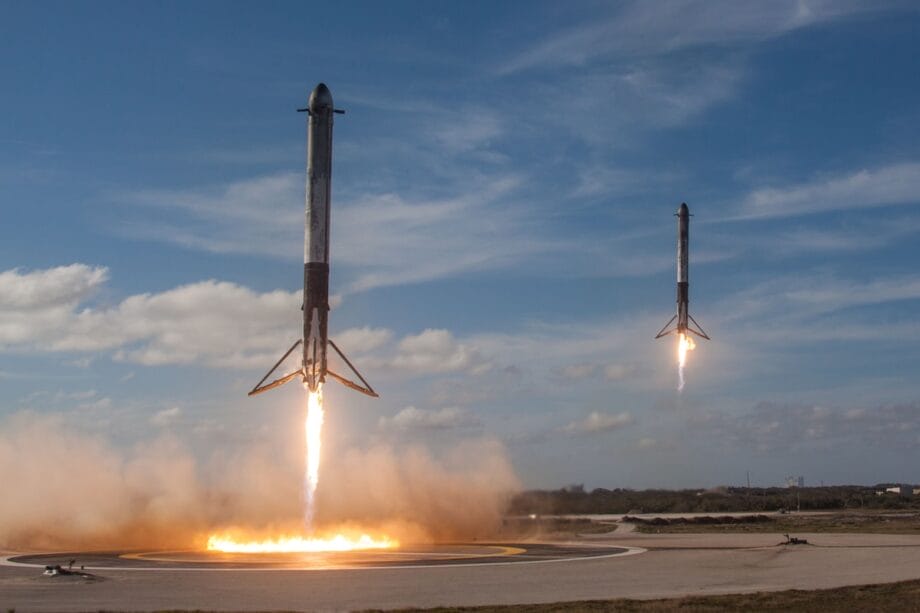Until recently, the Indian Space Research Organization (ISRO), a government entity, was the sole operator launching rockets into orbit. Governed by a mandate centered on research and development, ISRO’s launch frequency remains constrained.
However, following the liberalization of India’s space sector three years ago, Hyderabad-based Skyroot Aerospace is poised to execute its inaugural full-scale commercial satellite launch mission by January.
Co-founded by two former ISRO scientists, Skyroot aims to accomplish one launch every three months in the coming year and aspires to escalate this to one monthly launch by 2027.
Each mission is projected to yield approximately $5 million in revenue, as outlined by chief executive Pawan Chandana.
“The construction of a single rocket requires roughly eight to nine months and incurs costs between $2–3 million. As we scale operations, both time and expenditure will decrease. We anticipate revenue per launch to be nearly double our production costs,” Chandana stated.
“Our first launch will also generate operational revenue, featuring several paying satellite customers on board.”
Skyroot’s impending rocket launch signifies a pivotal moment for India’s space landscape, providing governmental agencies—such as the Ministry of Defense—as well as private enterprises in broadcasting and data analysis with a cost-effective means to launch satellites domestically.
In contrast to SpaceX, the private space firm led by Elon Musk, which has slashed rocket launch costs but faces a near two-year backlog, Skyroot positions itself as a timely alternative for clients requiring immediate services.
“The SSLV (ISRO’s Small Satellite Launch Vehicle) will cater to a distinct client base that approaches government consortiums for launches. On the private side, the competition will hinge on which provider showcases superior and more reliable technology,” Chandana remarked.
“Despite the competition, demand is substantial—every operational private space launcher is fully booked for the next two years. This is our opportunity.”
Key Takeaways
- Skyroot Aerospace, headquartered in Hyderabad and supported by Temasek and GIC, is preparing for India’s inaugural private commercial rocket launch within three months, with ambitions for quarterly launches next year.
- A successful mission would facilitate satellite launches for Indian companies and government bodies, reducing dependency on international services that entail long waiting periods and elevated costs.
- Nonetheless, engineering setbacks, funding cycles, and limited internal demand for satellite launches may challenge Skyroot’s trajectory toward profitability, as well as India’s overarching privatization efforts in the space domain.
Skyroot’s Ascendance
Established in 2018, Skyroot Aerospace has successfully garnered $95.5 million (₹850 crore) across multiple funding rounds from investors, including the Singapore-based Temasek and GIC.
Chandana, a graduate in thermal science and mechanical engineering from the Indian Institute of Technology—Kharagpur, embarked on his space career at ISRO in September 2012.
His six years at ISRO saw him involved in the creation of India’s heavy rocket launcher, utilized in the celebrated Chandrayaan lunar missions. It was during this tenure that he met his co-founder, Naga Bharath Daka.
After a brief intermission at the American semiconductor firm Xilinx, where Daka honed his skills for three years, the duo reconvened in July 2018 to establish Skyroot.
Skyroot made history as India’s first space startup to successfully demonstrate a rocket launch, deploying a smaller version of its satellite vehicle from Sriharikota in Andhra Pradesh in November 2022.
At that time, Chandana expressed aspirations for a rocket launch every two months by 2025. However, since that solitary suborbital launch, the firm has yet to extend its reach beyond Earth’s atmosphere.
“Mastering proprietary technology necessitated time,” Chandana elaborated. “We are currently the only operational small rocket globally with rapid turnaround capabilities, allowing us to accommodate up to five distinct payloads across varying orbital altitudes. Our size and scalability render us unique in this capacity.”
Skyroot stands among a select group of three indigenous rocket manufacturers, alongside Chennai’s Agnikul Cosmos and Hindustan Aeronautics Ltd’s privatized version of ISRO’s Small Satellite Launch Vehicle.
Agnikul achieved its suborbital test launch in May last year, 18 months subsequent to Skyroot’s achievement. The company has garnered $41 million in funding from investors, including Pi Ventures, Mayfield India, and Celesta Capital.
Delays and Obstacles
Skyroot’s arduous journey spanning seven years has not been exempt from hurdles. Initially, the management forecasted profitability by 2026, with bi-monthly satellite launches commencing this year. However, citing engineering delays and other impediments, the timeline has been extended, with expectations now set for March 2028.
“Such delays are not without precedent. The space industry faces numerous challenges—procurement of raw materials can be protracted, and engineering issues necessitate meticulous attention to ensure precise calculations to avert mishaps,” Chandana remarked.
“Precision in engineering and production is paramount; any misstep could adversely impact not only the company but the broader industry. Achieving a high standard of safety and accuracy is a time-intensive endeavor,” he added.
Chandana’s sentiments resonate with the historical journey of SpaceX. Founded in March 2002 with initial funding from the U.S. Defense Advanced Research Projects Agency, SpaceX endured a tumultuous progression, failing its first rockets—until it ultimately succeeded with Falcon 1 in July 2009, deploying a Malaysian satellite into orbit.
Today, SpaceX has ascended to become the world’s premier space services provider, completing 138 launches in 2024, averaging more than two per week, backed by nearly $6.2 billion in funds.
According to estimates provided by the Department of Space, India boasts around 200 space-oriented startups, of which at least half a dozen have secured upwards of ₹100 crore from various investors, including Agnikul, Pixxel, and Digantara.
The government envisions India’s space sector burgeoning from its current valuation of approximately $8 billion to $44 billion by 2033, contingent upon the success of its privatization initiatives, as stated by Jitendra Singh, Union Minister for the Department of Space, during the recent India Mobile Congress.
A Multibillion-Dollar Prospect
Despite generating modest revenue of about ₹50 lakh from its suborbital launch in 2022, Skyroot recorded no operating income for the financial year 2023-24, based on financial records submitted to the Ministry of Corporate Affairs and reviewed through the business intelligence platform Tofler.
Chandana anticipates this to shift as they embark on their inaugural satellite launch mission (specific financial details for FY25 were not disclosed).
“Once we initiate our operational revenue stream, we will take steps towards profitability. Our objective is to achieve this expediently, certainly within the next two fiscal cycles,” he stated.
In October 2023, a decade-long vision from the Indian National Space Promotion and Authorization Center projected annual revenue of $3.5 billion for India’s space launch service providers by 2033.
“The name most synonymous with global space exploration is SpaceX, and in India, the entity that parallels that image is Skyroot,” observed Surbhi Patni Dalmia, director and India head of the consulting firm Novaspace.
The founders possess stellar credentials and are meticulously managing the business to maintain control over technology and implement phased testing.
Depending on the performance of Skyroot’s missions, it exhibits all the characteristics of evolving into a multibillion-dollar venture in the space industry in the foreseeable future, Dalmia added.
Chandana is currently not pursuing additional capital for impending rocket launches. “We are sufficiently funded for the next two to three launches, after which we may reconsider. For now, immediate funding rounds or discussions regarding public listings are premature,” he explained.
Chandana maintains his status as the principal stakeholder in Skyroot Aerospace, owning around 56% of the company, with Daka possessing 28%.
Missed Global Opportunities
Skyroot’s delays have been characterized as “missed global opportunities,” according to Chaitanya Giri, a space fellow at the Observer Research Foundation.
India lacks the forecasted rocket launch demand, leading to a reliance on international markets. Demand is unlikely to arise from the U.S., Russia, or China, which possess robust internal capabilities.
Rather, it will emerge from nations like Iran and Israel, which are significant contributors to the small satellite launch sector. However, current geopolitical tensions complicate the potential demand Skyroot might have capitalized on in previous years, Giri remarked.

He further posited that Indian private space firms must adapt towards defense and military services, following the footsteps of French and U.S. counterparts like Dassault Systèmes, Lockheed Martin, and Boeing. “Even SpaceX is now positioning itself as a military launch resource,” Giri noted.
From an engineering perspective, Skyroot must demonstrate reliability and consistency at scale, according to Narayan Prasad Nagendra, a chief operating officer at European satellite services firm SatSearch.
Furthermore, he stressed that the enterprise must secure sufficient demand to maintain a monthly launch schedule for operational profitability.
“This will determine whether Skyroot fulfills its ambitious aspirations,” Nagendra asserted. “While projections exist, current geopolitical divides indicate that international collaborations critical for technology development are markedly different than in more favorable times.”
Source link: Livemint.com.






